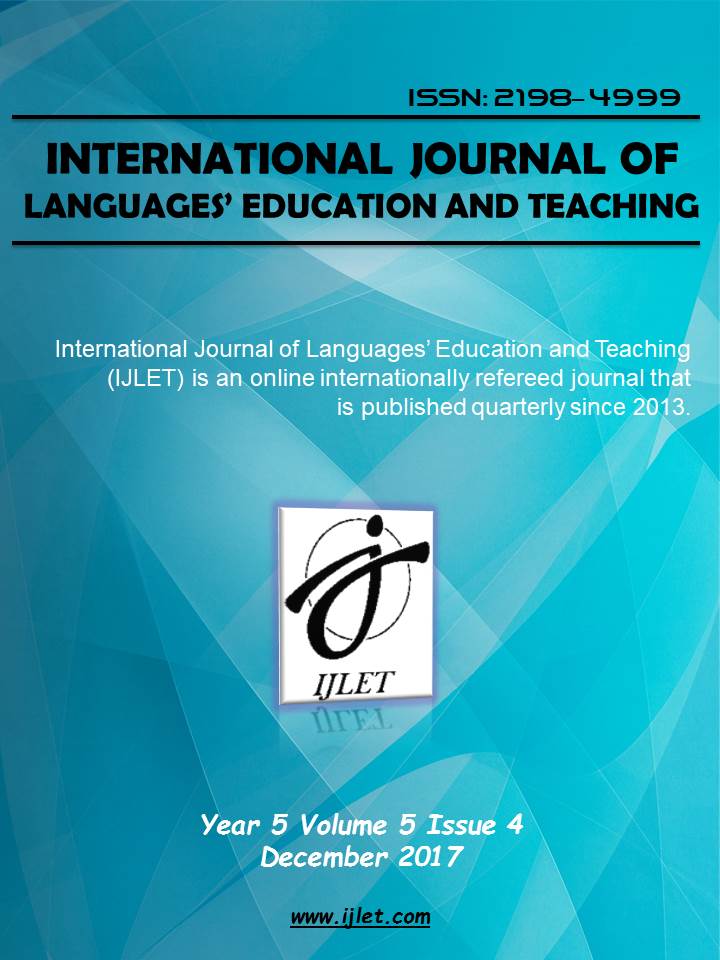Author :
Abstract
Keywords
Abstract
English in Tanzania is taught as one of the major subjects at Advanced Certificate of Secondary School Education (ACSE). This paper explores the strategies employed by teachers in implementing the ACSE curriculum. The curriculum requires that the subject be taught using the competence based approach where learner-centred strategies are emphasized. The study employed mixed methods and descriptive design. Purposive sampling was used to get schools and teachers because it was only schools that had English as a major subject in the municipality that were selected. The findings reveal that the teacher-centerd strategies dominate the curriculum implementation as opposed to learner-centerd ones as required by the curriculum. The paper therefore recommends that teachers in Iringa municipality be oriented on the learner-centred strategies in the implementation of English at ACSE. It is further recommended that since oral language skills form a large part of the curriculum, these skills be assessed at both school and national based assessments if they are to be taught and learnt. This is because no teacher can waste time teaching what is not assessed and no student can take trouble to learn what is not assessed.
Keywords
- Agrawal, M. (2004). Curricular reform in schools: the importance of evaluation. Journal of Curriculum studies. 36 (3), 361–379
- Creswell, J. W. (2012). Educational research: Planning, conducting and evaluating quantitative and qualitative Research (4th ed). Boston: Pearson Education.
- Kasuga, W. (2012). An investigation on the use of learner-centred approach for competence development in biology subject for certificate of secondary education in Iringa municipality-Tanania. (Unpublished master of Education Science dissertation). University of Dar es Salaam. Dar es Salaam.
- Komba, S. (2012). The predictive validity of the communication skills examination on students’ overall academic performance at the Sokoine University of Agriculture. (Unpublished phD (Education) thesis). University of Dare s Salaam. Dar es Salaam.
- Marcellino, M. (2008). English language teaching in Indonesia: A continuous challenge in education and cultural diversity. TFLIN Journal 19 (1), 57-69.
- Melton, R. F. (1994). Competence in perspective. Educational Research 36 (3), 285-294.
- Ministry of Education and Culture (1996). English Language Syllabus for Secondary Schools Form 1-6. Dar es Salaam. TIE.
- Ministry of Education and Vocational Training. (2005). English language syllabus for secondary schools form I-IV. Dar es Salaam: TIE.
- Ministry of Education and Vocational Training. (2009). English language syllabus for secondary schools form V-VI. Dar es Salaam: TIE.
- Mpayo, N. (2012). An examination of the implementation of competence based curriculum in the teaching of English language in selected secondary schools in Korogwe town council. (Unpublished M.A (Education) dissertation). University of Dar es Salaam. Dar es Salaam.
- Nation, I. S. P. & Newton, J. (2009). Teaching ESL/EFL Listening and Speaking. New York. Routledge.
- Nkwetisama, C. M. (2012). The competency based approach to English language education and the walls between the classroom and the society in Cameroon: Pulling down the walls. Theory and Practice in Language Studies 2 (3), 516-523.
- Nunan, D. (2013). Learner-Centered English language education: The selected works of David Nunan. New York. Taylor and Francis
- Onsare, P. O. (2013). The pedagogical hindrance to oral communication skills in english in Kenya: A case of secondary schools in Kisii county. Educational Research vol 4(7) 536-542
- Qorro, M. (2012). Investing in English language from the early grades in Tanzania primary schools: An implication for the proposed Education and Training policy. In Qorro,M; Desai, Z., and BrockUtne, B. Language of instruction: A Key to understanding what the teacher is saying. pp.56-74. Dar es Salaam. LOITASA.
- Richards, J. (2006). Communicative language leaching today. Cambridge: Cambridge University Press.
- Ryan, S. and Frazee, D. (2012). Common Core Standards for High School English Language Arts. Denver. MCREL.
- Tillya, F. and Mafumiko, F. (2010). The compatibility between teaching methods and competence based curriculum in Tanzania. Papers in Education and Development 29, 37-56.
- Toth, P. D. & Davin, K. J. (2016). Sociocognitive imperative of L2 pedagogy. The Modern Language Journal. 100 (1).148-168
